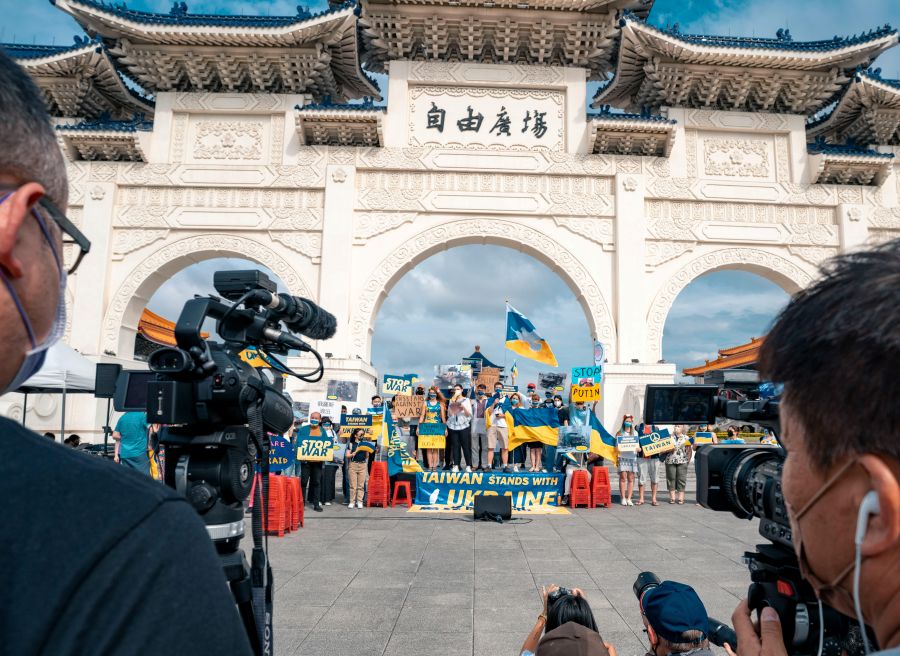In Taiwan, the role of news media has always been a crucial element of its vibrant democratic system. However, in recent years, the landscape of media has undergone dramatic changes, significantly impacted by the evolving relationship between Taiwan and China. The rise of digital platforms, increasing political polarization, and covert Chinese influence have all played pivotal roles in reshaping how information is disseminated and consumed across the island.
The value of news in Taiwan has always been rooted in its ability to inform citizens, offer diverse perspectives, and maintain a transparent democratic process. Yet, as Taiwan continues to face growing pressure from the Chinese Communist Party (CCP), the media environment has shifted, with profound implications for both journalists and consumers. The changing dynamics of cross-strait relations have forced Taiwan’s media industry to navigate an increasingly complex terrain.
One of the most prominent trends in recent years has been the proliferation of disinformation campaigns, which have sought to undermine public trust in democratic institutions and create confusion within the Taiwanese public. These efforts, often orchestrated by CCP-affiliated actors, have included the spread of false narratives about Taiwan’s political stability, its relationships with international allies, and its handling of crises such as the COVID-19 pandemic. The CCP’s extensive use of online platforms, including social media networks, to disseminate these falsehoods has highlighted the challenges of combating information manipulation in the digital age.
In addition to disinformation campaigns, Chinese media influence in Taiwan has been growing steadily. Through covert partnerships with local outlets, paid advertorials, and content-sharing agreements, Beijing has attempted to insert its narratives into Taiwanese news cycles. This has raised significant concerns about media censorship and the potential for local outlets to be pressured into promoting CCP-friendly content. A case in point is the Want Want China Times Media Group, which has been accused of producing pro-Beijing content while suppressing critical reports on Chinese human rights issues. As Taiwan’s media conglomerates increasingly rely on business ties with China, many have been co-opted into perpetuating Chinese narratives, potentially compromising journalistic integrity.
The consequences of this shift are alarming, as Taiwanese citizens face a reduced diversity of news sources and a greater concentration of media ownership. In such a landscape, the free flow of information is at risk, and the very essence of news as a tool for democratic engagement is under threat. Moreover, as cross-strait relations become more contentious, media outlets that challenge the CCP’s position or highlight sensitive issues such as Taiwan’s sovereignty, its relationship with the United States, and the ongoing challenges posed by Chinese military aggression are often subjected to intimidation and legal action.
Despite these challenges, Taiwan has not remained passive. Civil society has mobilized to combat Chinese influence in the media, with movements such as the 2019 Anti-Red Media Movement, which successfully rallied thousands of protesters against Chinese infiltration in Taiwanese media. Furthermore, efforts to enhance media literacy have been implemented to help the public recognize fake news and resist external manipulation. Civil society organizations have held workshops on digital literacy, promoting fact-checking tools, and urging Taiwan’s youth to critically engage with the media they consume.
The Taiwanese government, in response, has introduced policies to regulate Chinese media influence and counter disinformation. The government’s stance has become more assertive, with new laws being discussed to ensure transparency around foreign influence and prevent Chinese entities from meddling in local elections or media operations. However, the pushback from certain sectors of Taiwanese society, particularly opposition parties, signals a growing divide on how best to safeguard the nation’s media independence while maintaining the principles of free speech.
As Taiwan moves forward, the media will continue to play a pivotal role in shaping the political discourse and public opinion. The decline of independent journalism due to external pressures, internal censorship, and political interference poses a serious threat to the democratic fabric of Taiwanese society. Yet, with strong civil society resistance, a growing media literacy movement, and a renewed commitment to transparency and regulation, Taiwan can preserve the value of news as an essential component of its democracy.
In conclusion, the new landscape of cross-strait relations presents a significant challenge to Taiwan’s media. The interplay of Chinese influence, disinformation campaigns, and the erosion of journalistic freedom highlights the urgent need for Taiwan to protect the independence and integrity of its media. Only by doing so can Taiwan ensure that the value of news remains intact in the face of mounting external pressures.

